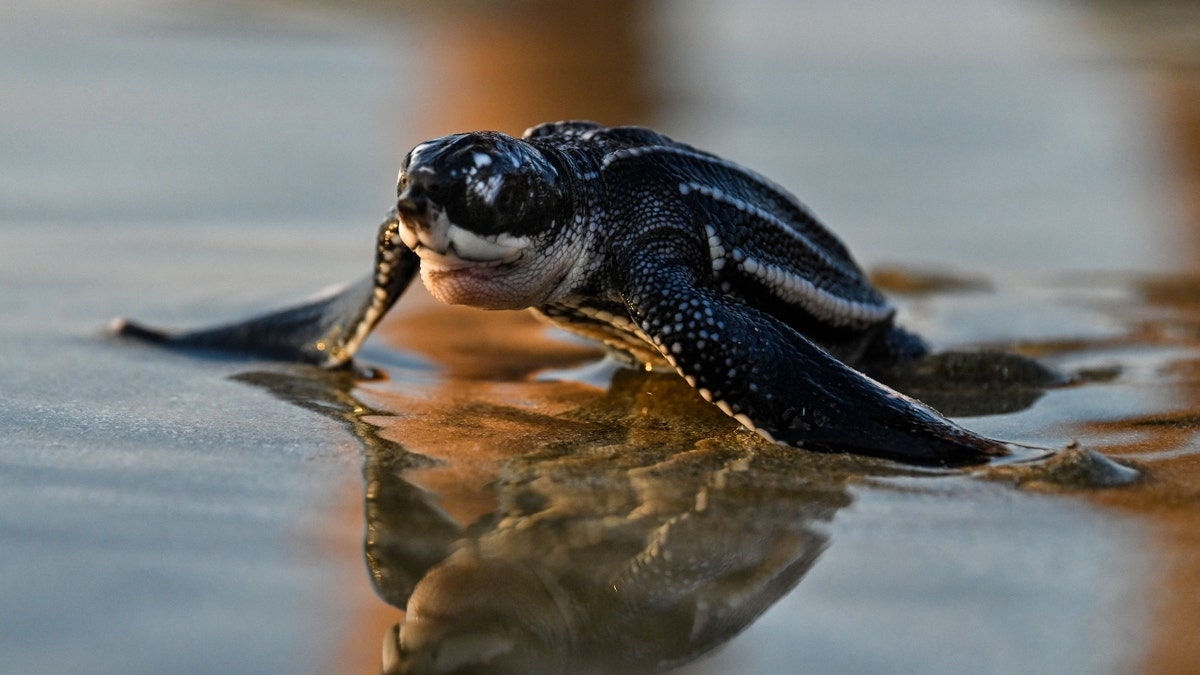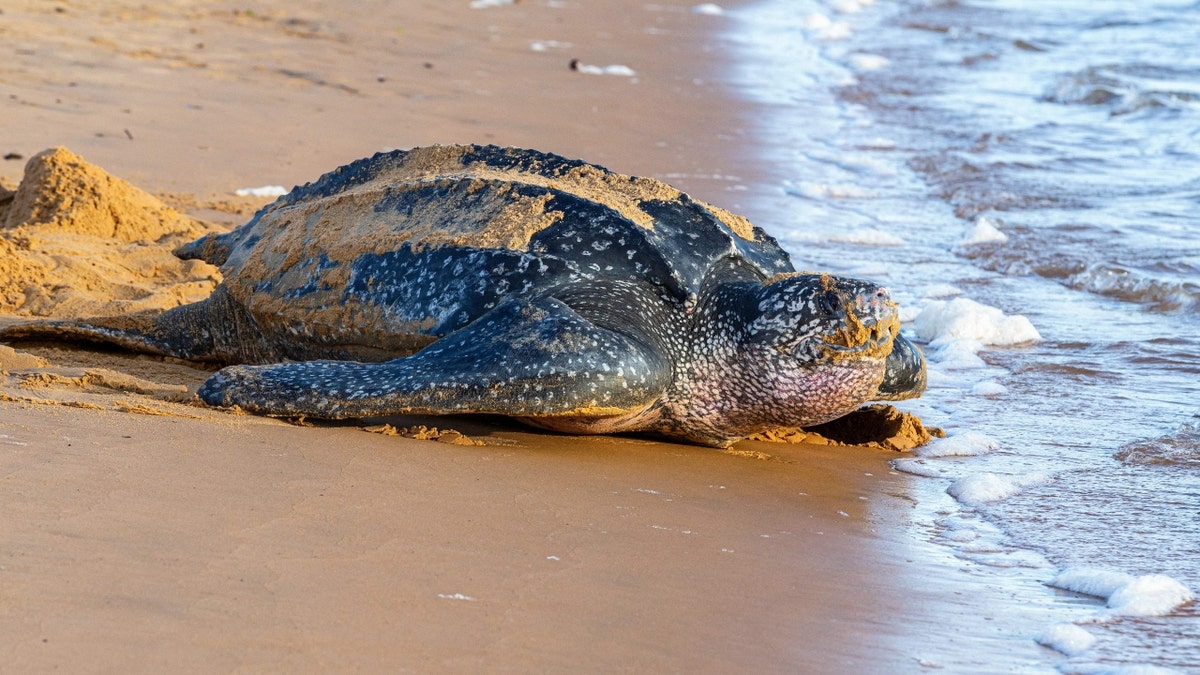Watch as this rehabilitated sea turtle returns to the ocean — it's 'turt-ally' awesome!
A loggerhead sea turtle received a heartfelt sendoff after completing its rehabilitation. Sweet Potato, affectionately nicknamed "Tater," was rescued after a flipper injury, rehabilitated and released by the Loggerhead Marinelife Center in Florida.
For the first time in 11 years, an endangered leatherback sea turtle has laid a nest on North Carolina's Ocracoke Island.
A nest with 93 eggs was laid on the beach and found in the early morning on Tuesday, June 20.
The Cape Hatteras National Seashore said its Scientist in Parks intern, Alexa Lyne, was able to assist with finding and relocating the nest.
"Because the nest was right at the high tide line, park biologists relocated all 93 eggs to a safer spot on the beach," it said.
MASSIVE SNAPPING TURTLE NICKNAMED 'CHONKOSAURUS' GOES VIRAL RELAXING ALONG CHICAGO WATERWAY
This is only the sixth leatherback sea turtle to nest on Cape Hatteras National Seashore since records have been kept.
Nests were found last year and in 2012, 2009, 2007 and 2004.
Leatherback sea turtles are the largest in the world. They are the only species of sea turtle without scales and a hard shell.
Named for their tough skin, the sea creatures can weigh up to 2,000 pounds and measure as long as 6.5 feet across as adults.
They have existed in their current form since the age of the dinosaurs, according to the National Oceanic and Atmospheric Administration (NOAA).

A small leatherback sea turtle heads toward the sea during the sunset at Lhoknga beach in Aceh province on February 25, 2023. (Photo by CHAIDEER MAHYUDDIN/AFP via Getty Images)
The turtles are highly migratory, with some swimming over 10,000 miles a year.
They also dive deeper than most marine mammals, with the deepest recorded dive reaching nearly 4,000 feet.
The leatherback turtle has the widest global distribution of any reptile, nesting mainly on tropical or subtropical beaches.
While previously prevalent in every ocean but the Arctic and Antarctic, the leatherback population is rapidly declining in many parts of the world.

This picture taken on July 4, 2019, shows a leatherback sea turtle, also known as the Luth turtle, laying eggs under the supervision of Kwata association members on a beach in Remire-Montjoly, French Guiana. (Photo by JODY AMIET/AFP via Getty Images)
CLICK HERE TO GET THE FOX NEWS APP
The leatherback sea turtle is listed as endangered under the Endangered Species Act, and it is estimated that the global population has declined by 40% over the past three generations.
It faces threats both on nesting beaches and in the ocean, with the greatest being incidental capture in fishing gear, the hunting of turtles and the collection of eggs for human consumption.
The Pacific leatherback turtle populations are most at risk of extinction.



